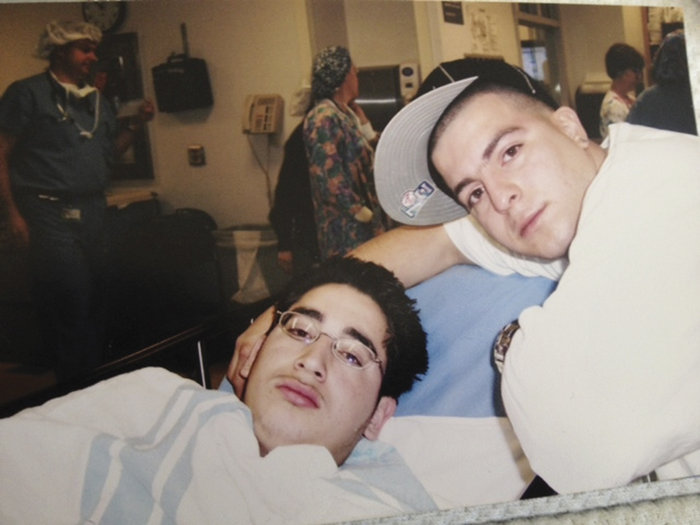North Bergen resident Kenneth Castano was born in 1988 with half of his heart formed.
He is missing the left ventricle of his heart but has still managed to live a seemingly normal life despite many surgeries.
He is now the first Latino person in this country to survive with such a condition. No longer the experimental baby, he is an inspiration for generations to come with Hypoplastic Left Heart Syndrome (HLHS).
“I’ve learned to adapt to it, that it’s a part of me,” said Castano.
What is a congenital heart defect?
Little Hearts, Inc. is a national organization that provides support, education, resources, networking and hope to families affected by congenital heart defects. Congenital means the defects occur during the development of the baby and may or may not be present at birth. Congenital heart is the number one birth defect, with more occurrences than Down Syndrome. According to Little Hearts, approximately 40,000 babies are born each year in the U.S. with a congenital heart defect. This equates to 1 out of 125 babies born with a heart defect. There are roughly 35 different types of congenital heart defects.
“My parents were told there was a 10 percent chance that I would survive.” – Kenneth Castano
____________
The key to his healthy heart
Kenneth Castano was born blue (not breathing) in Jersey City and was transferred to Children’s Hospital of Philadelphia, which is recommended for heart surgeries.
Three days into the world, Castano underwent his first open-heart surgery. He had another stage of the surgery at 5 months and at nearly 2 years old.
He has had more surgeries since then, including one on March 2005 for a pacemaker, a small device placed in the chest or abdomen to help control abnormal heart rhythms.
Castano became an experimental baby who was even operated on by Dr. William Norwood, who is world famous for congenital heart surgery, particularly on children born with one ventricle.
“I was an experiment,” said Castano. “My parents were told there was a 10 percent chance that I would survive.”
Castano’s parents, who spoke no English, were faced with the medical expenses and had to declare bankruptcy after his first surgery. Nowadays, Medicaid covers all of his medical expenses.
For the first 16 years of his life he was not under any medication at his father’s request, despite the doctors’ encouragement. His father would say, “My son was an experiment during the surgeries, now we’re going to experiment with this.”
Currently he is on three medications: Atenolol, Digooxin, and Enalapril, which all help to reduce any heart failure. His heart skips a beat at times.
Relatively normal upbringing
Castano was lucky to have a normal childhood despite his many surgeries. He enjoyed playing basketball and participated in gym class as he grew up in the North Bergen School district.
“I’ve never been limited,” said Castano.
Castano’s parents often reminded him that although he was lucky to be active, he also had to slow down at times.
“If you feel fatigued, you have to stop,” they would say.
Inspiration within the congenital heart community
Doctors consider Castano an inspiration for making it against the odds.
“I like living life one heartbeat at a time,” said Castano.
He’s not just a survivor; he is also drawing awareness at events like the Little Hearts annual picnic.
“I take pride in being the face of inspiration to all [those dealing with] congenital heart defects,” said Castano. “I don’t want to take it for granted because I have half a heart.”
Castano is currently in the process of writing a book and is affiliated with Jim Ferretti of KXL Portland Radio in Oregon. Ferretti’s 3-year-old daughter has a congenital heart defect and is a survivor.
Although he is a hero to many, Castano considers the parents of those who have congenital heart defects the true heroes, along with the doctors.
Congenital Heart Defects Awareness Week is celebrated in the U.S. from Feb. 7 to 14, and many wear red.
Vanessa Cruz can be reached at vcruz@hudsonreporter.com
